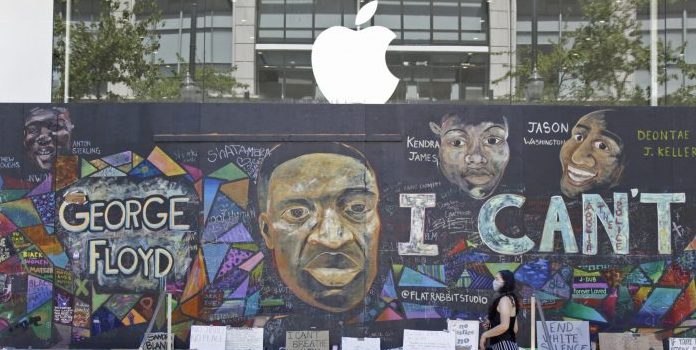(Headline USA) Night after night, hundreds of people marched the streets of Oregon’s largest city, demanding racial justice after the death of George Floyd.
Among the rallying cries were “defund the police”—a call for elected officials to reallocate some law enforcement funding elsewhere.
In June 2020, the Portland City Council and the mayor answered by cutting millions from the police budget.
Now, a year and a half later, officials partially restored the cut funds.
On Wednesday, the Portland City Council unanimously passed a fall budget bump that included increasing the current $230 million police budget by an additional $5.2 million.
The added police spending is occurring amid a year of a record number of homicides, the city’s greatest police staffing shortage in decades and reform recommendations made by the U.S. Department of Justice.
“Many Portlanders no longer feel safe,” Mayor Ted Wheeler said. “And it is our duty, as leaders of this city, to take action and deliver better results within our crisis response system.”
Portland isn’t the only radical leftist city doing an about-face on police spending.
From New York City to Los Angeles—in cities that had some of the largest Black Lives Matter protests—police departments are seeing their finances partially restored in response to rising homicides, an officer exodus and political pressures.
In recent mayoral elections, some winning candidates have pledged to bolster public safety budgets.
In Minneapolis, where Floyd was killed, voters rejected a proposal to replace the police department with a new Department of Public Safety.
Although the three-word call to action was the jumping-off point for communities to talk about how they want to be policed, boomerang leftists now claim the goals of “defund the police” are debatable.
To some it means abolishing police departments, while for others it is about cutting law enforcement budgets and to others it is about reform and accountability.
Yet, the vagueness and lack of clearly definied objectives makes it politically convenient as a rallying cry for a movement that seemed doomed to fail from the outset, like so many other leftist initiatives that seek to erode the status quo and replace them with experimental projects that must be micromanaged by the nanny-state.
Even so, race-hustling profiteers far away from the violent streets of Portland were eager to philosophize about the movement’s idealism.
“The defund-the-police movement spearheaded an opportunity for historically disenfranchised and historically under-resourced communities to express their continued discontent with policing,” said Howard Henderson, the Center for Justice Research director at Texas Southern University.
Showing little self-awareness, Henderson noted that some of the loudest voices of the “defund” movement weren’t people in neighborhoods most riddled by crime.
“The folks who live in these high-crime communities …. they don’t want to get rid of police altogether,” Henderson said. “What they want to do is get rid of bad policing,”
In Portland, gun violence has disproportionately impacted communities of color. Family members of homicide victims and advocates who work with young gang members have questioned the cuts and asked for greater police presence, along with accountability and increased social services.
Nationally, homicides increased by nearly 30% from 2019 to 2020, based on FBI data. However, in Portland, deadly violence has increased at a faster rate than nearly all major cities, with an 83% increase in homicides in 2020.
Aaron Chalfin, a University of Pennsylvania criminologist who has studied four decades of police budgets in major cities, says 54% of the times that cities hired more officers, homicide numbers decreased.
“At the end of the day was it the best phrase? Maybe it was? Maybe it wasn’t?” Henderson said. “But at least we’re talking about it.”
Adapted from reporting by the Associated Press

